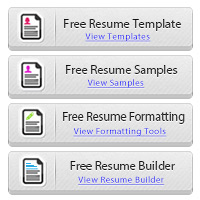
The modern world requires modern thinking and this is as true with your resume as any other aspect of the world around us. While a traditional format is still required for your resume to be deemed accepted upon first impressions, many of the old rules in resume writing are now becoming obsolete. Let’s see whats changed in recent times and what we need to keep in mind when writing our resume in the year 2017.
Resume Writing Considerations for 2017
With the industry in which you operate dictating the structure and content of your CV to a large degree, a common thread which connects all resumes is the personal statement or summary section at the beginning of your resume. A modern approach to writing this section allows you a chance to break the old rules which once defined perceived mistakes, presenting yourself instead in an informative and interesting way to provide you with a distinct advantage over other applicants.
Personifaction, the use of “I” in resume writing
It was once considered that you shouldn’t write your statement subjectively and that referring to yourself in the singular form as “I” was inappropriate. With this summary section needing to act as your sales pitch, it’s important that you can connect directly with the person reading your resume and writing from the first-person perspective is an effective way of achieving this.
Another common trap is to write a list of soft-skills which you possess as this can feel disingenuous and appear to be added out of necessity rather than through calculated thought. Although you do need to list any technical skills in this way, a formulaic layout will not capture anyone’s attention.
This is an outdated concept which still lingers from the eighties, a time that expected your skillset to be checked off mechanically to show your suitability for an available position. In avoiding a series of buzzwords and jargon you will also create a more natural, personified statement. What you ideally want to do achieve is to make your resume unique and reverberate with a strong human voice behind the words.
Overly formal resume writing style
The language which you choose to use will also carry a general tone and this too can be used to give your application an advantage. You should also aim to use complete sentences rather than stilted phrases which will not only make the summary easier and friendlier to read, it will grow an individual voice that will help you relate your message to the reader.
Where some people have used their personal statement to almost pleading with employers for the chance to work at their company, this is another popular character which you should look to side-step as you should not resort to begging for a job however good the position is.
Whilst using a more conversational tone in place of an angular, formal approach in writing makes you seem more accessible, it’s essential that you try not to fall into the trap of regurgitating clichéd expressions in your statement. This will serve to create a holistically bland reading experience for the member of HR who has to sort through, potentially, hundred’s of submitted CV’s.
The reverse of this is also true and you shouldn’t set the tone at an inappropriate level to the environment in which you hope to join. Finding a balance between informal and professional is a tricky path to tread but in achieving it, you will show off a flair and expertise that few other candidates will attain.
Include Future Career Objectives
A classic rule of resume writing also states that you should identify yourself through previous job titles and past recognitions that you’ve received in the line of relative work and study. Your following CV below the statement will already contain this information so instead, you should focus your attention on branding the product, namely, yourself.
While it was once considered normal to only include relevant achievements which prove why you are suitable for the role, you should also include realistic future aspirations that you may have in the industry.
Through explaining why you chose to work in this particular area, to begin with, you’re showing what motivates you to succeed and what it is about the job which inspires you. This will translate an enthusiasm and love of the job which is an important consideration for any prospective employees can then better judge if you will be a good fit for the available position.
By creating more of a story in your resume summary you are unleashing the real you upon the eyes of the HR department. Rather than hiding behind a list of faceless achievements, job titles and mind-numbing jargon which other candidates can sedate employers with, you should strive to show just what it is which makes you a unique fit for the job.
When sending out your resume it’s important to remember that there are no golden rules which can be applied to make yourself more appealing to every employer out there. While some employers will view a modern approach to resume writing as a big positive in your application, others may prefer to receive a more traditionally-styled resume.
However, if you wish to work for a forward-thinking, progressive company, you will need to show that you too have these qualities. Through writing your resume you have the perfect platform to communicate this and push you ahead of other candidates before the interviewing process begins.
